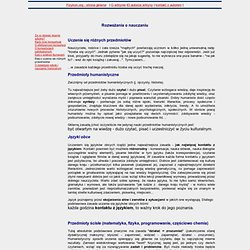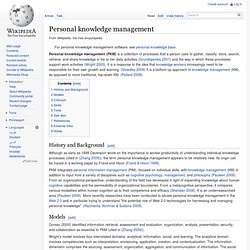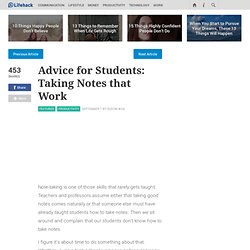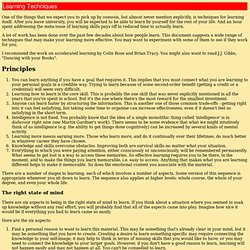

Train Philosophers with Pearl and Kahneman, not Plato and Kant. Part of the sequence: Rationality and Philosophy Hitherto the people attracted to philosophy have been mostly those who loved the big generalizations, which were all wrong, so that few people with exact minds have taken up the subject. Bertrand Russell I've complained before that philosophy is a diseased discipline which spends far too much of its time debating definitions, ignoring relevant scientific results, and endlessly re-interpreting old dead guys who didn't know the slightest bit of 20th century science. Is that still the case?
You bet. How to Read a Book. Properly, we should read for power.

Man reading should be man intensely alive. The book should be a ball of light in one’s hand.– Ezra Pound I run a One Man University. I’m the Dean, the Professor, and the entire student body of OMU. My major is the conscious pursuit of happiness; my minor, everything else. I’m an able student even though I’ve never gotten high marks in my courses. Much of my learning takes place along the intellectual highways paved by great works of literature, both factual and fictional. So it should be no surprise that the heart of my university is its library. But building my library of good books is pretty easy.
Reading for Growth All deliberate action is prefixed by an idea. So when you look down and notice yourself holding a good book in your hands, what do you do next? Unfortunately, if your goal is to actually learn something from your efforts, things get a little more tricky. Personal growth books require particular consideration. Speed Reading Slow Reading. Matematyka w liceum <> Zadania <> Matura z matematyki. Justice with Michael Sandel - Online Harvard Course Exploring Justice, Equality, Democracy, and Citizenship. Matematyka, Liceum, Opracowania tematów i zagadnień. Esej o uczeniu sie różnych przedmiotów. Nauczyciele, rodzice i cała rzesza "mądrych" powtarzają uczniom w kółko jedną uniwersalną radę: "trzeba się uczyć!

". Jednak pytanie "jak się uczyć? " pozostaje najczęściej bez odpowiedzi. Jeśli już ktoś, przyparty do muru zdobędzie się na jakąś sugestię, to nie wykracza ona poza banalne - "na jak to? - weź do ręki książkę i zakuwaj... ". Tymczasem... ...w zasadzie każdego przedmiotu trzeba się uczyć trochę inaczej.
Przedmioty humanistyczne Zacznijmy od przedmiotów humanistycznych (j. ojczysty, historia). Lektury belfra Staszka - Lektury szkolne. Personal knowledge management. Personal knowledge management (PKM) is a collection of processes that a person uses to gather, classify, store, search, retrieve, and share knowledge in his or her daily activities (Grundspenkis 2007) and the way in which these processes support work activities (Wright 2005).

It is a response to the idea that knowledge workers increasingly need to be responsible for their own growth and learning. (Smedley 2009) It is a bottom-up approach to knowledge management (KM), as opposed to more traditional, top-down KM. (Pollard 2008) History and Background[edit] Although as early as 1998 Davenport wrote on the importance to worker productivity of understanding individual knowledge processes (cited in (Zhang 2009)), the term personal knowledge management appears to be relatively new.
Models[edit] Dorsey (2000) identified information retrieval, assessment and evaluation, organization, analysis, presentation, security, and collaboration as essential to PKM (cited in (Zhang 2009)). Criticism[edit] Advice for Students: Taking Notes that Work. Note-taking is one of those skills that rarely gets taught.

Teachers and professors assume either that taking good notes comes naturally or that someone else must have already taught students how to take notes. Then we sit around and complain that our students don’t know how to take notes. I figure it’s about time to do something about that. Whether you’re a high school junior or a college senior or a grad student or a mid-level professional or the Attorney General of the United States, the ability to take effective, meaningful notes is a crucial skill. Not only do good notes help us recall facts and ideas we may have forgotten, the act of writing things down helps many of us to remember them better in the first place. Learning Techniques. One of the things that we expect you to pick up by osmosis, but almost never mention explicitly, is techniques for learning itself.

After you leave university, you will be expected to be able to learn by yourself for the rest of your life. And an hour spent addressing the meta-issue of learning skills pays off in reduced time to actually learn. A lot of work has been done over the past few decades about how people learn. This document suggests a wide range of techniques that may make your learning more effective. You may want to experiment with some of them to see if they work for you. I recommend the work on accelerated learning by Colin Rose and Brian Tracy. You can learn anything if you have a goal that requires it. There are a number of stages to learning, each of which involves a number of aspects. The right state of mind There are six aspects to being in the right state of mind to learn.
Here are the six aspects: